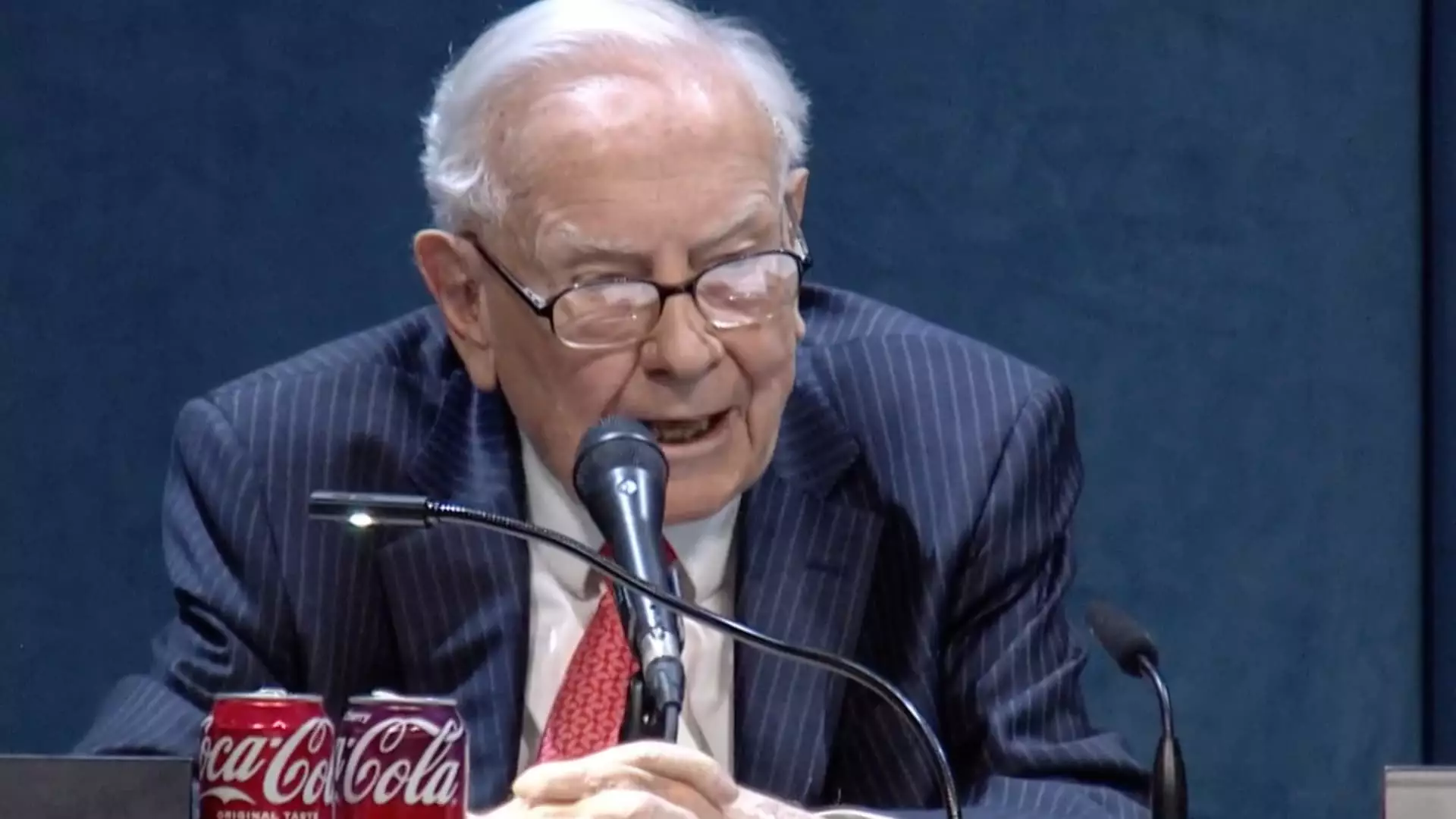In a recent address that reverberated through financial circles, Warren Buffett, the venerable investment icon, openly criticized the aggressive trade policies of the current U.S. administration. While he refrained from mentioning President Trump by name, his disapproval of punitive tariffs was unmistakable, presenting a clear warning on the perils of a mercantilist approach. Buffett stated, “Trade should not be a weapon,” advocating for a vision of mutual prosperity rather than one predicated on adversarial tactics.
From Buffett’s perspective, isolationist trade policies operate on a fundamental misunderstanding of economic dynamics. He emphasized that increased wealth in other countries does not come at the expense of U.S. prosperity; rather, it enhances global stability and prosperity for all. Such a nuanced viewpoint challenges the notion that trade can serve as a zero-sum game, a misguided belief that often drives nationalist agendas.
The Perils of Protectionism
Buffett’s commentary strikes a chord in an era increasingly characterized by protectionist impulses. He articulated that protectionism is not merely an economic consideration; it’s a potential catalyst for geopolitical tensions, akin to acts of war. The negative consequences of such policies could linger far longer than anticipated, influencing not just businesses but also diplomatic relations. The rhetoric surrounding trade—as if it were a weapon—can deepen divides rather than foster collaboration.
With China responding to U.S. tariffs with retaliatory measures, what could have been an opportunity for negotiation and collaboration instead devolved into an escalating tit-for-tat affair. This has created not only instability in stock markets but also uncertainty for businesses operating within and beyond American borders. If trade becomes synonymous with conflict, the vast, interconnected web of global commerce could face serious decoupling risks, ultimately harming U.S. interests.
The Reality of Economic Interdependence
Buffett highlighted a critical truth: with a global population exceeding seven billion, turning inward only restricts America’s economic opportunities. As the U.S. emerged as a dominant industrial powerhouse, its trajectory of prosperity hinged on building bridges rather than erecting walls. This perspective resonates deeply within a center-left liberal framework, which values inclusivity and cooperation over division.
In a world increasingly driven by interdependence, the notion of “America first” may ring hollow. The successes of American enterprises are often intricately linked to broader global trends. As Buffett articulated, the moment we dismiss shared progress is the moment we relinquish our own advantages. Declining to engage with the world means risking stagnation for the very same economy purportedly protected by these tariffs.
Market Reaction and Investor Insights
As expected, the markets reacted to both Buffett’s insights and the ongoing shifts in trade policies. The volatility stemming from the recent tariff announcements serves as a stark reminder of how intertwined market dynamics are with political decisions. Buffett’s investment decisions reflect a defensive posture against an unpredictable landscape. His company, Berkshire Hathaway, is reported to have divested over $134 billion in stock amid this uncertainty, a testament to his cautious approach.
Investors are keenly aware that escalating trade tensions could reverberate across multiple sectors—energy, transportation, retail, and beyond—areas in which Berkshire is heavily invested. A contracting GDP further complicates the economic narrative, raising alarms for stakeholders about the potential long-term implications of this trade climate.
Hope for a Cooperative Future
If we take Buffett’s arguments seriously, there arises a compelling necessity to rethink America’s trade strategy moving forward. A focus on cooperation rather than confrontation is crucial for fostering sustainable economic growth. A shift towards diplomatic negotiations, where mutual interests are prioritized, may pave the way toward achieving not just economic stability but also international goodwill.
Ultimately, leaders must recognize that trade—and the policies governing it—will shape the global community for generations to come. To ignore the valuable lessons shared by influential figures like Buffett would be to underestimate the foundational principles that underpin both economic theory and successful practice. By nurturing a spirit of cooperation and mutual prosperity, we can work towards an economic framework that benefits all nations engaged in trade.

